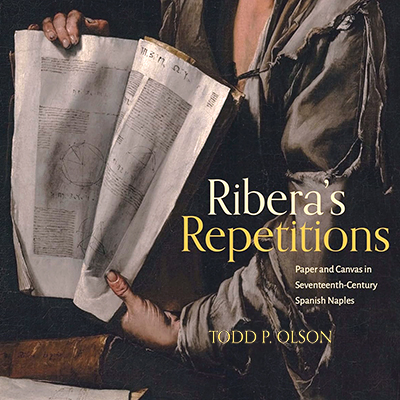
Ribera’s Repetitions: Paper and Canvas in Seventeenth-Century Spanish Naples
The 17th-century Valencian artist Jusepe de Ribera spent most of his career in Spanish Viceregal Naples, where he was known as “Lo Spagnoletto,” or “the Little Spaniard.” Working under the patronage of Spanish viceroys, Ribera held a special position bridging two worlds. In Ribera’s Repetitions (Penn State, 2025), Todd Olson (History of Art) sheds new light on the complexity of Ribera’s artwork and artistic methods and their connections to the Spanish imperial project.
Drawing from a diverse range of sources, including poetry, literature, natural history, philosophy, and political history, Olson presents Ribera’s work in a broad context. He examines how Ribera’s techniques, including rotation, material decay (through etching), and repetition, influenced the artist’s drawings and paintings. Many of Ribera’s works featured scenes of physical suffering — from Saint Jerome’s corroded skin and the flayed bodies of Saint Bartholomew and Marsyas to the ragged beggar-philosophers and the eviscerated Tityus. But far from being the result of an individual sadistic predilection, Olson argues, Ribera’s art was inflected by the legacies of the Reconquest of Spain and Neapolitan coloniality. Ribera’s material processes and themes were not hermetically sealed in the studio; rather, they were engaged in the global Spanish Empire. Pathbreaking and deeply interdisciplinary, the book offers a means to see Ribera’s art anew.
Olson is joined by Niklaus Largier (Comparative Literature and German). After the discussion they will take questions from the audience.
